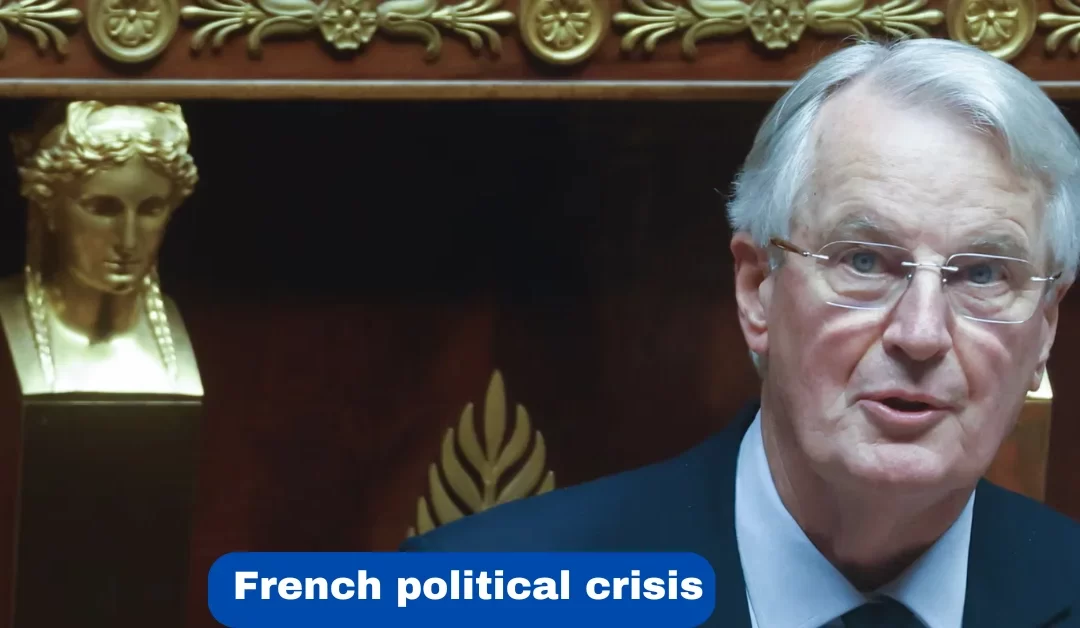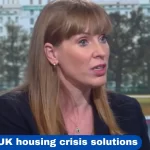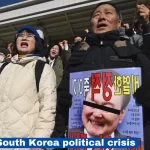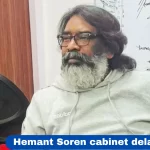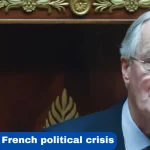A Major Political Crisis in France
The French government is facing a potential collapse as left-wing and far-right parties unite against Prime Minister Michel Barnier. The conflict stems from Barnier’s decision to pass an austerity budget using the controversial “49.3” constitutional clause, which allows legislation to be enacted without a parliamentary vote. This has sparked anger across the political spectrum and led to motions of no confidence in his leadership. The vote is scheduled for Wednesday, and if successful, it will force the government’s resignation.
The Controversial Budget and Its Impact
The budget aims to tackle France’s growing public deficit by implementing €60 billion in tax increases and spending cuts. The austerity measures have faced widespread criticism for their potential impact on ordinary citizens. Barnier’s refusal to compromise with opposition parties has further fueled tensions.
Key Points About the Budget:
- Massive Deficit Reduction: The budget targets a significant reduction in public debt by 2025.
- Healthcare Adjustments: Plans to reduce medication reimbursements were met with strong opposition.
- Public Backlash: Critics argue that the cuts unfairly burden ordinary citizens while ignoring alternative solutions.
Left-Wing and Far-Right Unite
For the first time since 1962, the French government may be brought down by a no-confidence vote. Two opposing political forces have come together to challenge Barnier:
The Left-Wing Coalition:
The New Popular Front (NFP), a coalition of Socialists, Greens, Communists, and other left-leaning parties, had already announced their intention to censure the government. Mathilde Panot, a prominent MP from the hard-left Unbowed France (LFI), criticized Barnier’s negotiations with the far-right as “a political trick.”
The Far-Right National Rally (RN):
Marine Le Pen’s party joined the effort by filing their own no-confidence motion. Le Pen accused the government of forcing citizens to pay for years of mismanagement and failing to consider alternative approaches to reducing the deficit.
Barnier’s Last-Minute Concessions
In an effort to prevent a political meltdown, Barnier attempted to appease the far-right by making concessions. He assured that planned reductions in medication reimbursements would not take effect until after 2025. However, his efforts to reach a compromise have largely failed to sway the opposition.
Key Statements by Michel Barnier:
- Call for Responsibility: Barnier urged MPs to prioritize the nation’s future over political interests.
- Defense of Austerity: He emphasized the necessity of reducing France’s public deficit to stabilize the economy.
What Happens If the Government Falls?
If the no-confidence motion passes, Barnier will be forced to resign. However, he and his ministers could remain as a caretaker government until President Emmanuel Macron decides on the next steps. Macron has several options:
Possible Scenarios:
- Forming a New Coalition: Macron could ask parties to create a new majority coalition in parliament.
- Appointing a Technocratic Government: Experts from outside politics might temporarily take charge.
- Delaying Elections: Legislative elections cannot be held until at least 12 months after the last vote, so a temporary administration would be needed.
A Historical Moment in French Politics
If the government is toppled, it will mark only the second time in modern French history that a government has fallen due to a no-confidence vote. The last instance occurred in 1962, under President Charles de Gaulle.
Historical Context:
- In 1962, Georges Pompidou’s government was brought down due to disagreements over policy.
- Today’s crisis highlights deep divisions in French politics, with parliament split into three roughly equal factions: left, center, and far-right.
France’s Uncertain Future
France is at a crossroads. The outcome of the no-confidence vote will not only decide the fate of Michel Barnier’s government but also set the tone for how political conflicts are resolved in the country. As tensions rise, all eyes are on Wednesday’s vote, which could reshape the nation’s political landscape.

